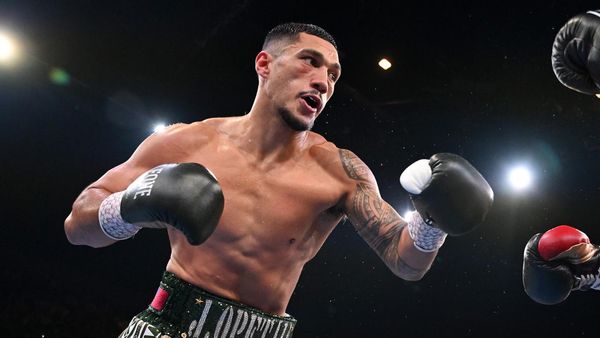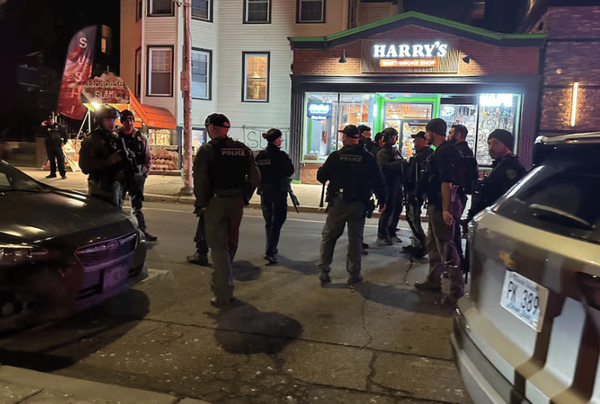
Multiple sites of possible secret or “clandestine” burials have been discovered on the grounds of one of the most violent and abusive institutions of the Stolen Generations era – Kinchela Aboriginal Boys’ Training Home on the north coast of New South Wales.
At least nine “suspicious” sites of possible graves have been identified by experts surveying the area using ground-penetrating radar (GPR), Guardian Australia can reveal.
The NSW government is aware of the discovery and received a report on the survey six months ago. The report highlighted “high priority anomalies” in the ground at the home, which show “signal patterns that in other contexts have proven to be human burials” and cannot be explained by other information sources.
“Some evidence supports the use of cadaver dogs in finding buried human remains,” the report said.
The report added there is a possibility that “graves may occur” in other areas not already investigated. It recommended further physical searches of the entire property near the town of Kempsey.
If human remains are found in those areas, the report said “they would likely be of the clandestine burial type and not typical Christian burials”.
It is understood the report’s authors urge caution about interpreting the results, as some of the anomalies could be archaeological as well as forensic. If forensic (less than 100 years old), police would need to be called in. However the authors note the only way to determine for sure if there are bodies buried on the site is to excavate.

The survivor organisation Kinchela Boys’ Home Aboriginal Corporation (KBHAC) is calling on the NSW and federal governments to urgently fund further searches of the entire property.
They also want excavation at the high-priority areas to determine whether some may be children who died at Kinchela and were buried in secret.
“I’m hoping that there’s nothing there. Just as simple as that. But with the way that those people were and the way that they flogged us, it wouldn’t surprise me at all,” the KBHAC chairman, Uncle James Michael “Widdy” Welsh, said.

The report was prepared by archaeologists for the NSW government at the request of the Kinchela survivors, who have long maintained that Aboriginal boys died at the home, either as a result of brutal physical punishment and neglect or because they may have “met with foul play”.
Kinchela was run by the Aborigines Protection Board, later called the Aborigines Welfare Board, under the NSW government from 1924 until it closed in 1970. An estimated 400 to 600 Aboriginal boys between the ages of five and 15 were taken away from their families and incarcerated there under the laws and policies of the Stolen Generations.
Survivors recall being referred to by a number, not by their names. They were flogged or chained to a tree overnight for wetting the bed. They were told they weren’t Aboriginal, that their families didn’t want them or their parents were dead.
Uncle Roger Jarrett recalled being one of those chained overnight to a tree as punishment.
“Over the back, there’s the fig tree. It had a six-foot chain on it. If a boy said something trivial, they’d cut sleeves out of an old sugar bag, put it on and wet it. Take him out there, they chain him up, padlock them and leave them there,” he said.


Uncle Vince Wenberg remembered a “sadistic” manager in the 1950s who used a cat-o’-nine-tails. Another manager would masturbate in front of the boys or take them into his office.
“I never had much to do with him myself. I didn’t get ... it’s only the other boys. I think he used to do it. It was very sickening. It’s hard to speak about it now,” Uncle Vince, who died in 2020, said in an oral history interview in 2001.
Many survivors talked about being “sent down the line”.
“Each and every day you got a flogging. Some of the boys said trivial things like they might have said someone’s name. They’d get you sent down the line,” Uncle Roger said.
“They would put 30 this side and 30 that side and they’d send this boy down. You’d have to punch him hard and if you didn’t punch him hard enough, the staff would walk behind you and belt the crap out of you with a cane. If it was not hard enough for them, they’d send you down the line.”
Survivors say they are frustrated the NSW government has had the report for six months and not responded formally to their requests for further exploratory work on the site.
“Until they get excavators out here and actually dig [the anomalies] up and find out exactly what they are, we are still going to keep wondering, and the government’s just gonna keep putting things off,” Uncle Roger said.
“They just have to do the right thing and get it all done. Because we’re just guessing until then, and we just want a bit of peace and truth. I’m 76. So I haven’t got that long left, and I want to see it before I die.”
The report was handed to Aboriginal Affairs NSW (AANSW) in March 2023. Kinchela survivors and local Dunghutti families and traditional owners were briefed on its contents at the time.
But the Kinchela Aboriginal Boys’ Training Home survivors say there has been no further progress.
In late June, the KBHAC board wrote to the NSW government to notify it of their unanimous preference for urgent excavation and other archaeological work to begin at the site. In the letter, seen by Guardian Australia, the KBHAC board said it wanted all high-priority areas to be excavated and relevant approvals be provided by the Heritage Council of NSW to undertake the work.
Guardian Australia understands there was a subsequent meeting with AANSW representatives on 28 June.

The letter also requested that AANSW coordinate a presentation to the KBHAC board at its 20 July meeting so that Kinchela survivors (who call themselves the Uncles) could discuss the “sensitive matter” with Heritage Council of NSW and the archaeological consultants.
“The Uncles identified that their prior and informed consent is essential in this very sensitive matter and know that this is something you and AANSW would understand, respect and support,” the letter says.
This meeting did not occur, and there has been no further progress on the matter, Uncle Widdy said.
Uncle Lester was removed from his family at the age of three and taken to Cootamundra Domestic Training Home for Aboriginal Girls, where many of the very young boys were taken, before he was sent to Kinchela when he was six years old.
He said the report confirmed what survivors of the home have long been saying.
“We’re not looking for sympathy. We’re just telling the truth … The surveys that have been done, that just proves what we were saying was true,” he said from his Brisbane home.
A spokesperson for the NSW Minister for Aboriginal Affairs and Treaty, David Harris, said he has requested an “update” on this sensitive matter from his department.
“The Minister has been advised that the issues raised by Kinchela Boys’ Home Survivors and their representatives relate to highly sensitive and serious Sorry Business on which Aboriginal Affairs NSW is working in consultation with the Kinchela Boys Home Aboriginal Corporation and the Kempsey Local Aboriginal Land Council.”.
For information and support in Australia call 13YARN on 13 92 76 for a crisis support line for Indigenous Australians; or call Lifeline on 13 11 14, Mensline on 1300 789 978 and Beyond Blue on 1300 22 4636







